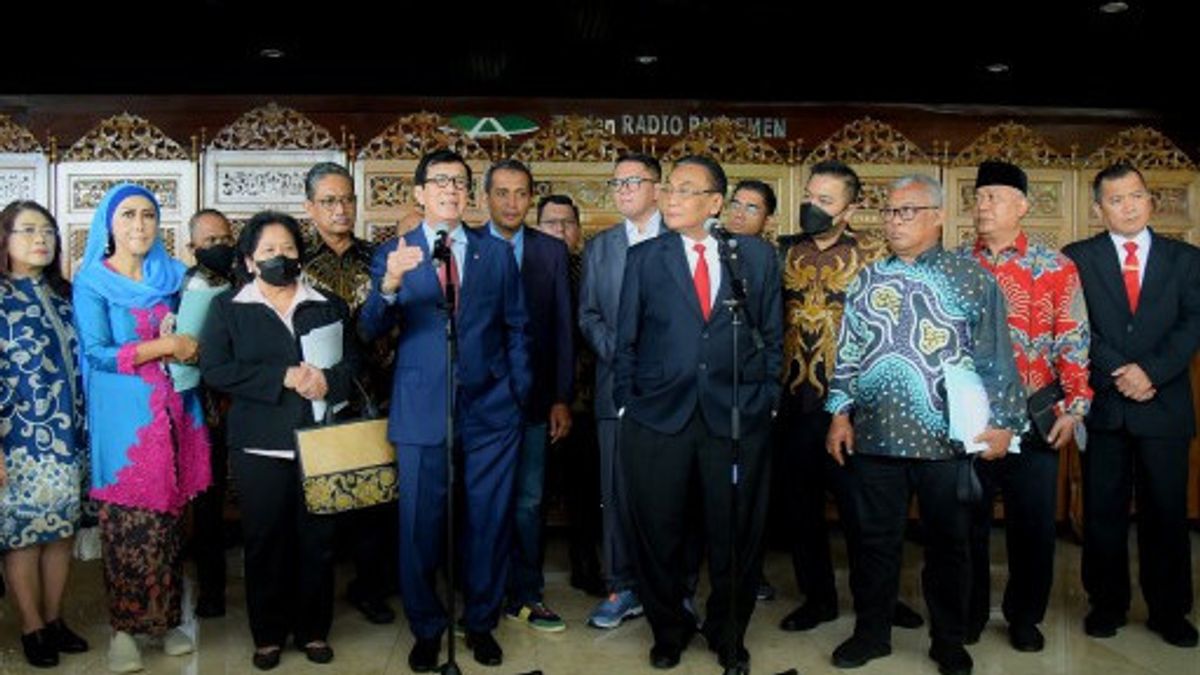JAKARTA - Executive Director of Amnesty International Indonesia Usman Hamid said that the ratification of the Criminal Code (KUHP) was a form of setback for human rights (HAM). This law is considered to exacerbate the shrinking civilian space in the country.
"What we have witnessed is a backward blow to Indonesia's progress which has been hard achieved in protecting human rights and basic freedoms for more than two decades," Usman said in a written statement, Wednesday, December 7.
Usman said the controversial Criminal Code would limit the space for people to move. There are a number of articles that have been highlighted, namely the prohibition of demonstrating without permission to the enactment of articles that prohibit insults to the president and his deputy and officials.
Thus, the law seems to give authority to the authorities and is not impossible to become a tool to suppress opinions. "This can create a climate of fear that hinders peaceful criticism and freedom of assembly," he stressed.
Not only that, Usman also highlighted the violation of private space by the government because of the ratification of the Criminal Code. One of them, with the existence of an article that prohibits sex outside of marriage.
According to him, if the relationship is carried out consensually, it should not be considered a criminal act. "The provision of morality has the potential to even be misused to criminalize victims of sexual violence or target residents just because they have a certain gender identity and expression," he said.
Amnesty International Indonesia believes that the Criminal Code should not have been ratified from the start. Usman said the government should prioritize improving conditions for civil liberties, which have been getting backward lately.
"This KUHP should have never been ratified from the start and was a dramatic setback for the progress of human rights in Indonesia," said Usman.
"Instead of destroying the human rights victory that was obtained hard, the Indonesian government and the DPR should improve conditions for the setback of civil liberties and fulfill their human rights commitments and constitutional obligations for the benefit of all Indonesian people," he continued.
As previously reported, the DPR approved the RKUHP to be ratified into law. This approval was given through the Plenary Meeting which was held on Tuesday, December 6.
"Can the Criminal Code Bill be approved to be passed into law," said Deputy Speaker of the Indonesian House of Representatives Sufmi Dasco Ahmad at the DPR Plenary Meeting at the Parliament Complex, Jakarta, Tuesday, December 6.
Dasco said all factions had expressed their opinion at level I regarding the RKUHP to be brought to the DPR Plenary Meeting for decision making.
The English, Chinese, Japanese, Arabic, and French versions are automatically generated by the AI. So there may still be inaccuracies in translating, please always see Indonesian as our main language. (system supported by DigitalSiber.id)










